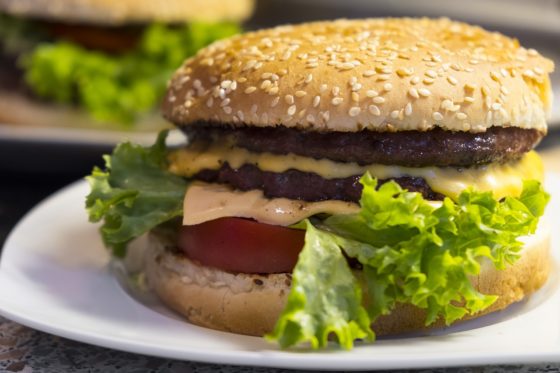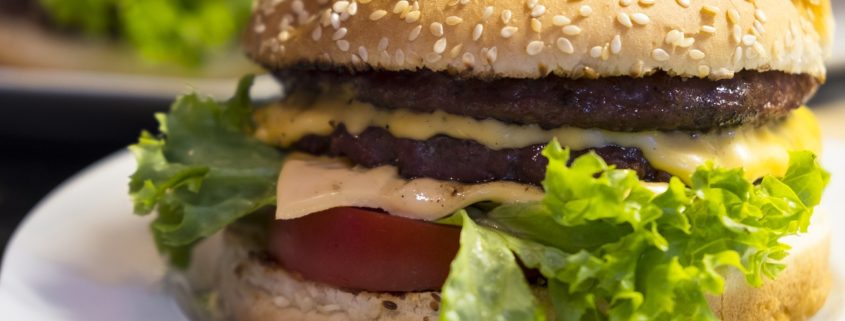Junk Foods During Pregnancy May Increase Risk of ADHD

There are a lot of good reasons to eat healthy foods — that’s the key to maintaining a healthy weight and getting all the nutrients you need. It also helps improve your mood! Pregnancy is no different. You and your little one will be healthier if you maintain a healthy weight and eat a well-rounded diet. But a recent study gives yet another reason to avoid junk food during pregnancy: it’s linked to an increased risk of ADHD in the baby.
This post will define ADHD as well as discuss how junk food affects baby’s genes and how to get help with your pregnancy diet.
Do you have any tried-and-true tips for avoiding certain foods and opting for healthy ones during pregnancy? Share with us below in the comments!
Contents
What is ADHD?
What, exactly, is ADHD? ADHD stands for attention deficit hyperactivity disorder. It’s a brain disorder that makes it harder for you to focus, sit still, get organized, and make thoughtful decisions.
Many children have a hard time sitting still in a desk all day — that’s tough for an energetic kid! But fidgeting and trouble concentrating don’t necessarily mean that someone has ADHD. To be considered ADHD, the symptoms must be frequent and severe enough to impact development or the ability to function in school, at work, or socially.
We often think of it as a condition that affects children, but the disorder also persists into adulthood.
We don’t know precisely what causes ADHD, but a number of factors have been linked. Exposure to certain environmental toxins, a family history of ADHD, abnormal formation or development of certain areas in the brain, and other factors all increase the risk of developing ADHD.
Junk Food Affects Baby’s Genes (Not Just Your Jeans)
A recent study published in the Journal of Child Psychology and Psychiatry measured the impact of the mother’s diet during pregnancy on the likelihood that the baby would have ADHD. It also measured the impact of prenatal diet on the insulin-like growth factor 2 gene (IGF2), which plays an important role in fetal neural development. High-sugar and high-fat diets are linked to “DNA methylation” of that gene, which may be involved in the development of ADHD.
The researchers tracked 164 children; 84 had early-onset persistent conduct problems and the other 81 had low or no conduct problems. The participants were drawn from the Avon Longitudinal Study of Parents and Children, so researchers had access to the necessary dietary records. Researchers compared the children’s ADHD symptoms and IGF2 methylation over time with their mothers’ diets during pregnancy.
The study found that for both groups, an unhealthy maternal diet was linked to higher levels of IGF2 methylation at birth. For the children with early-onset persistent conduct problems, higher levels of methylation were linked to more severe ADHD symptoms.
In other words, they found a correlation between unhealthy diet during pregnancy and the likelihood that a child will suffer from ADHD. Researchers suggest that a fatty and sugary diet actually impacts the function of the IGF2 gene, which in turn impacts the brain development of the child.
See also: 6 Best Apps for Moms to Monitor Growing Babies
Other High-Fact Diet Risks for Developing Baby
Another study of non-human primates tested how a high-fat maternal diet affected their developing offspring. While human studies general have more weight, this study was done to tightly control a diet in a way that wouldn’t be possible with humans (we all have urges and fib a little in our diet journals, right?).
Led by an assistant professor at Oregon Health & Science University, the study “revealed behavioral changes in the offspring associated with impaired development of the central serotonin system in the brain.”
It didn’t matter whether the offspring were male or female, either. Of the 135 offspring of Japanese macaques analyzed, researchers found both sexes when exposed to a high-fat diet while in the womb exhibited more signs of anxiety than those in the control group. A high-fat diet also impaired the development of neurons containing serotonin, which is critical in brain development.
Unfortunately, introducing a healthy diet to the high-fat exposed offspring early in their youth did nothing to reverse the effects.
How to Protect Your Little One
Pregnancy already comes with plenty of risks, and you can’t control all of them. But you can control this one. A healthy diet is better for you and for the baby all around, and that’s even more important in light of this new study.
It can be tough with the cravings and the stress, but try to avoid fatty and sugary foods as much as possible, and especially foods high in processed sugars. It’s OK to chow down on a cheeseburger sometimes or indulge in a bowl of ice cream, but maintaining a healthy diet overall is a really good way to support the healthy development of your little one.
See also:








Leave a Reply
Want to join the discussion?Feel free to contribute!